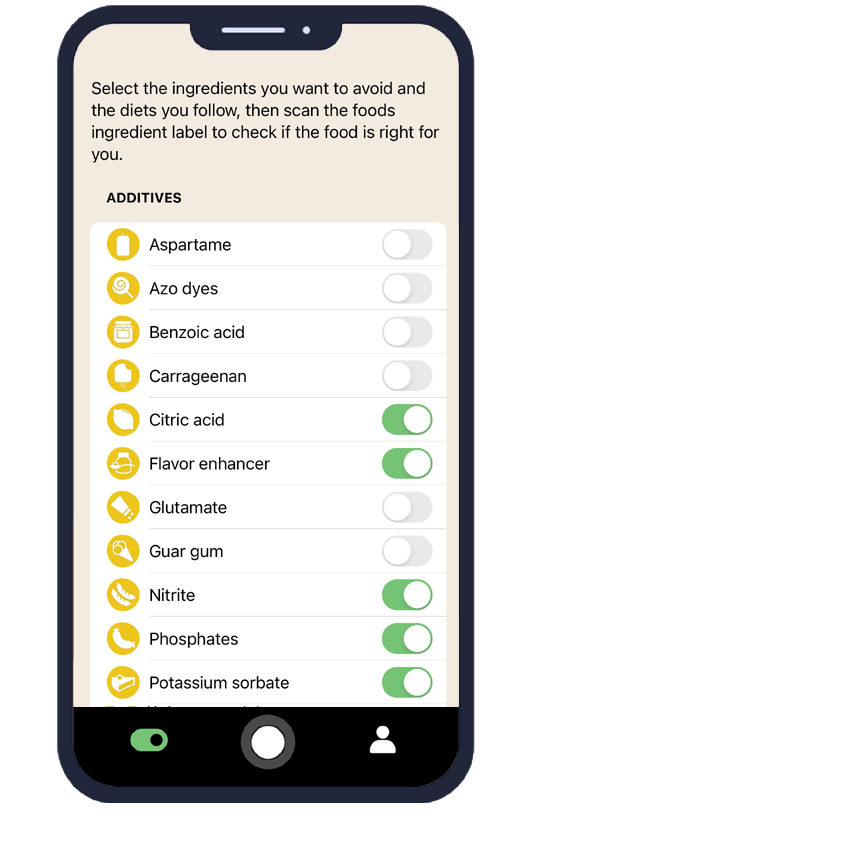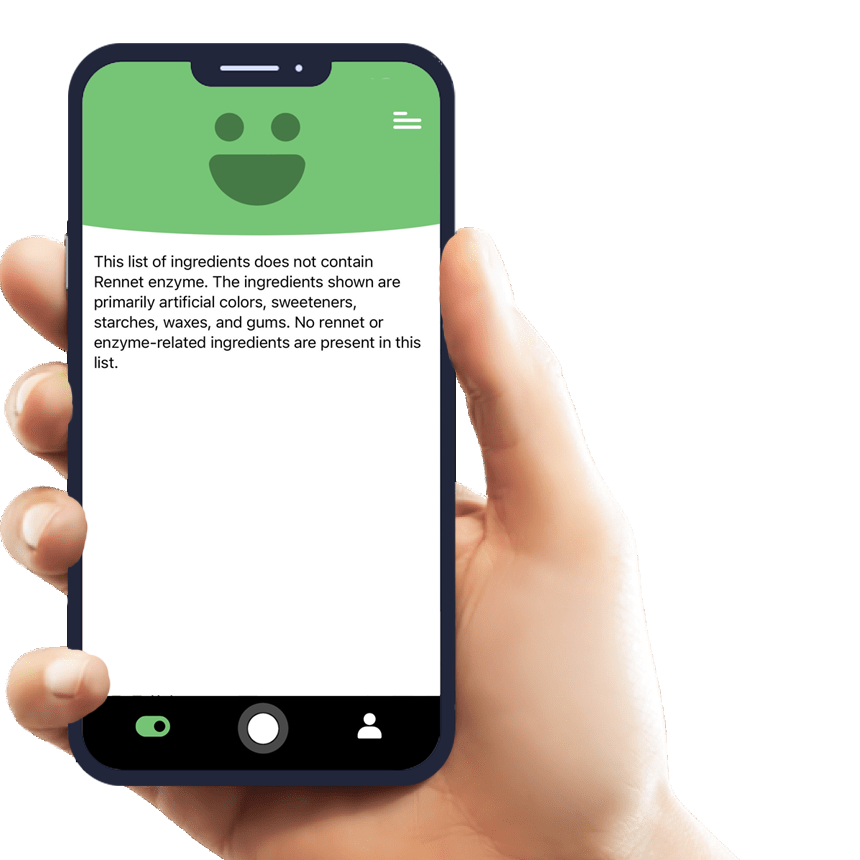Everything You Need to Know About Poppy Seeds and How AI Eat This Can Help
Poppy seeds are tiny, nutrient-rich seeds that appear in countless food products worldwide, from baked goods to salad dressings. While generally safe for most people, poppy seeds can pose challenges for individuals with specific allergies, dietary restrictions, or those who need to avoid them for medical reasons. Understanding where poppy seeds are hidden in processed foods and how to identify them quickly is crucial for maintaining your health and dietary goals.
The AI Eat This mobile app revolutionizes how consumers identify poppy seeds and other ingredients in food products. By simply scanning ingredient lists with your smartphone camera, this innovative tool helps you make informed decisions about what you eat, regardless of language barriers or complex food labels.
What Are Poppy Seeds and Where Are They Used?
Poppy seeds come from the opium poppy plant (Papaver somniferum) and are widely used as both food additives and primary ingredients. These small, dark seeds add a distinctive nutty flavor and crunchy texture to various culinary creations. Unlike the plant's other parts, poppy seeds themselves contain minimal amounts of opiates, making them legal and generally safe for consumption.
In the food industry, poppy seeds serve multiple purposes beyond flavor enhancement. They act as natural thickening agents, provide nutritional value through healthy fats and minerals, and offer visual appeal as garnishes or coatings.
Common Foods Containing Poppy Seeds
Poppy seeds appear in numerous processed and prepared foods, often where consumers least expect them. Understanding these common sources helps individuals with dietary restrictions make better food choices.
- Baked goods: bagels, muffins, cakes, and pastries
- Salad dressings and vinaigrettes
- Spice blends and seasoning mixes
- Granola bars and energy snacks
- International cuisines: Eastern European dishes, Indian curries
- Processed meats and sausages
- Some breakfast cereals and oatmeal products
Are Poppy Seeds Safe? What Does the Research Say?
Regulatory Approvals and Guidelines
Major health authorities including the FDA, European Food Safety Authority (EFSA), and World Health Organization (WHO) recognize poppy seeds as generally safe for consumption. These organizations have established guidelines ensuring that commercially available poppy seeds meet safety standards for opiate content.
The FDA requires that poppy seeds used in food production undergo washing processes to remove any surface contamination. Similarly, EFSA has set maximum residue limits for morphine and codeine in poppy seeds to ensure consumer safety.
Potential Concerns and Risks
While poppy seeds are safe for most people, certain situations require caution. Some individuals may experience allergic reactions, though true poppy seed allergies are relatively rare. More commonly, people avoid poppy seeds due to concerns about drug testing, as consumption can potentially cause positive results on opiate screenings.
Pregnant and breastfeeding women often choose to limit poppy seed consumption as a precautionary measure, though research indicates minimal risk when consumed in typical food amounts.
How Does AI Eat This Help You Avoid Poppy Seeds?
The AI Eat This app transforms ingredient identification from a time-consuming task into a simple, instant process. This powerful tool addresses the growing need for quick, accurate food analysis in our fast-paced world.
Using advanced artificial intelligence, the app scans ingredient lists through your smartphone camera, instantly identifying poppy seeds regardless of the language on the packaging. This feature proves invaluable for travelers, multilingual households, or anyone shopping for imported products.
The app's personalized filter system allows users to set specific dietary restrictions, including poppy seed avoidance. Once configured, the app immediately alerts you when scanning products containing poppy seeds, preventing accidental consumption and supporting your health goals.
Who Should Consider Avoiding Poppy Seeds?
Several groups may benefit from limiting or avoiding poppy seed consumption. Individuals with known poppy seed allergies must strictly avoid these ingredients to prevent potentially serious reactions. Though rare, poppy seed allergies can cause symptoms ranging from mild digestive discomfort to severe allergic responses.
People subject to regular drug testing, including athletes, healthcare workers, and individuals in recovery programs, often choose to avoid poppy seeds. Even though the opiate content in properly processed poppy seeds is minimal, some prefer eliminating any possibility of positive test results.
Those following specific dietary restrictions for religious, cultural, or personal reasons may also need to identify and avoid poppy seeds in processed foods.
Tips for Maintaining a Poppy Seed-Free Diet
Successfully avoiding poppy seeds requires vigilance and the right tools. Reading ingredient labels carefully remains essential, but the sheer volume of products and complex ingredient names can make this challenging.
Focus on whole, unprocessed foods when possible, as these naturally contain fewer hidden ingredients. When purchasing packaged foods, pay special attention to baked goods, dressings, and international food products where poppy seeds commonly appear.
Utilize technology like the AI Eat This app to streamline your shopping experience. The app's instant scanning capability eliminates guesswork and saves time while ensuring accuracy in ingredient identification.
When dining out, don't hesitate to ask servers about poppy seed ingredients in dishes. Many restaurants can provide ingredient information or suggest alternatives that meet your dietary needs.
The Future of Food Safety and Dietary Management
As food allergies and dietary restrictions become more common, tools like AI Eat This represent the future of personalized nutrition management. The app's ability to instantly identify poppy seeds and thousands of other ingredients empowers consumers to make confident food choices.
This technology particularly benefits families managing multiple dietary restrictions, as the app can simultaneously check for various allergens and unwanted ingredients in a single scan.
Conclusion
Understanding poppy seeds and their presence in food products is crucial for individuals with allergies, dietary restrictions, or specific health concerns. While generally safe for most consumers, poppy seeds can pose challenges for those who need to avoid them.
The AI Eat This app provides an innovative solution for identifying poppy seeds in food products quickly and accurately. By leveraging advanced technology, this tool simplifies dietary management and supports healthier eating habits for users worldwide.
Take control of your dietary choices today. Download AI Eat This for free testing and experience how technology can transform your approach to food safety and ingredient awareness!

70 filters
With over 70 filters, you can easily avoid certain ingredients and follow your dietary preference.

Paleo

Pescetarian

Ultra-processed food

Vegan







































































